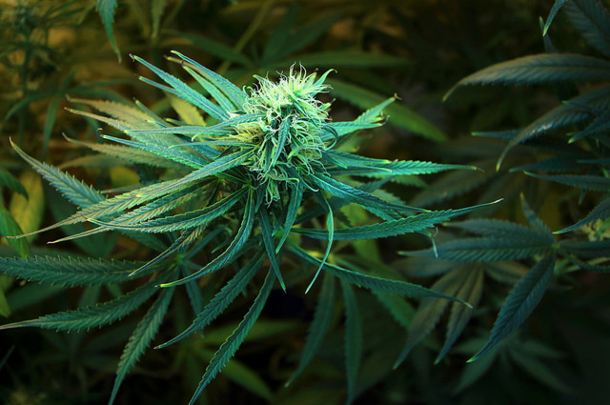It’s official — the federal Liberal government has tabled its long-awaited legislation to legalize recreational cannabis. Now B.C. policymakers are tasked with working out the kinks of marijuana regulation in this province — from taxation to setting a minimum buying age to preventing potential interprovincial smuggling.
The federal legislation introduced Thursday establishes a minimum buying age of 18 (although provinces and territories may set a higher limit), a legal right for households to grow four plants and penalties for selling to minors and driving while under the influence. Provinces and territories will have jurisdiction over price and be able to decide where marijuana is distributed and sold.
So far, none of the provincial party leaders have come out with a plan for how B.C. will regulate cannabis. The party that wins the May 9 election will face some tough challenges when it comes to preventing the development of a black market and building an economic infrastructure for cannabis production.
With yesterday’s legislation, one thing is clear — execution of a good plan is key. Fortunately, there are American examples in states where marijuana has already been legalized to provide guidance.
Weeding out the black market
B.C. policymakers will have to carefully consider how cannabis is taxed, especially if they want to avoid mistakes made in Washington and Colorado where high taxation promoted black and grey markets, according to Joseph Henchman, vice president of legal and state projects at the Tax Foundation, a U.S. non-profit.
“The states in the United States that did legalize marijuana all did so at the ballot [box]. It was not through legislation. Instead an interest group or someone out there... would write language for a ballot initiative,” said Henchman.
Issues that might have been anticipated through hearings and debates were overlooked because the ballot initiative proponents drafted the legislation, Henchman said.
Henchman and Tax Foundation policy analyst Morgan Scarboro published “Marijuana Legalization and Taxes: Lessons for Other States from Colorado and Washington” in May 2016.
The report found that the over-taxation of legal cannabis in Colorado and Washington meant buyers continued to buy on the black market.
In Colorado, cannabis users pay an effective tax of 29 per cent, adding $8.59 to the $30 cost of an eighth of an ounce, the report says. The effective tax rate is 37 per cent in Washington, but it was originally even higher. Medical marijuana is exempt from taxes in Washington and taxed at only 2.9 per cent in Colorado.
“[The difference in tax rates] incentivizes people to buy through the medical market, that can be through a fraudulent way of getting a medical marijuana license... or just buying from a friend who has a medicinal card,” Scarboro said. “If you’re not risk-averse, even though you shouldn’t legally be doing that, that’s going to be your obvious choice.”
B.C. currently has a seven per cent provincial sales tax and the federal government collects the five per cent GST.
If governments stick with those taxes, the combined 12 per cent rate would be lower than the 15 to 20 per cent tax that California and Nevada are considering on legalized recreational cannabis, according to Henchman.
If the province introduces higher tax rates, a grey market like the ones in Washington and Colorado could develop.
A cross-provincial smuggling market?
Heavy taxation of legal marijuana could also encourage smuggling from provinces with lower tax rates, Scarboro said.
“If you’ve got really high rates, no competition and smuggling is easy and low-risk, then you start to get into places like New York where half of cigarettes consumed in the city have been smuggled in from other places,” he said, citing a Tax Foundation report published in January that found 55 per cent of cigarettes consumed in New York had been smuggled into the state.
Canada has not been immune to this problem.
A retired steelworker was charged under New Brunswick Liquor Control Act in 2012 when he brought 14 cases of beer and three bottles of liquor across the Quebec border. The charge was dismissed in 2016 when Judge Ronald LeBlanc found that the charge violated interprovincial free trade.
If cannabis tax rates are disproportionate between provinces, Canadians could similarly decide to go to another province with cheaper taxes to make their purchases.
Reaping benefits from pot production
It’s no secret that British Columbia produces some of the highest quality cannabis.
“B.C. bud has a great reputation,” Canadian Drug Policy Coalition executive director Donald MacPherson said. “B.C. has been producing world class cannabis for 40 years.”
Businesses are already looking to capitalize on B.C.’s reputation and the opportunity to grow cannabis in an organic, pesticide-free way. Tantalus Labs has set up an environmentally controlled greenhouse specifically for cannabis production.
“We have seen no leadership from any political party in anticipation of this campaign. Nobody has come out and recognized the massive economic potentials,” Dan Sutton, founder and managing director of Tantalus Labs, said.
Sutton wants to see B.C. take a leadership role in how it develops its cannabis marketplace. In his view, cannabis should be considered an agricultural product and should be moved out of basement grow ops and into fields and greenhouses, which require less power to operate and minimize the development of moulds.
Sutton is predicting an economic boom in B.C. similar to what was seen in Colorado and Washington. Legalized cannabis has become a billion-dollar industry in those states, with revenues from taxes on cannabis exceeding initial estimates.
Colorado raked in $200 million in tax revenue from legalized cannabis in 2016. Henchman and Scarboro’s report had anticipated $140 million in tax revenue.
“This has to be a homegrown made-in-British Columbia and made-in-Canada solution,” Sutton said. “It’s the provinces that are proactive and assertive in their policy and start getting the right academic, industry and policy minds in their camp that are going to be the winners.” ![]()
Read more: Politics
















Tyee Commenting Guidelines
Comments that violate guidelines risk being deleted, and violations may result in a temporary or permanent user ban. Maintain the spirit of good conversation to stay in the discussion.
*Please note The Tyee is not a forum for spreading misinformation about COVID-19, denying its existence or minimizing its risk to public health.
Do:
Do not: